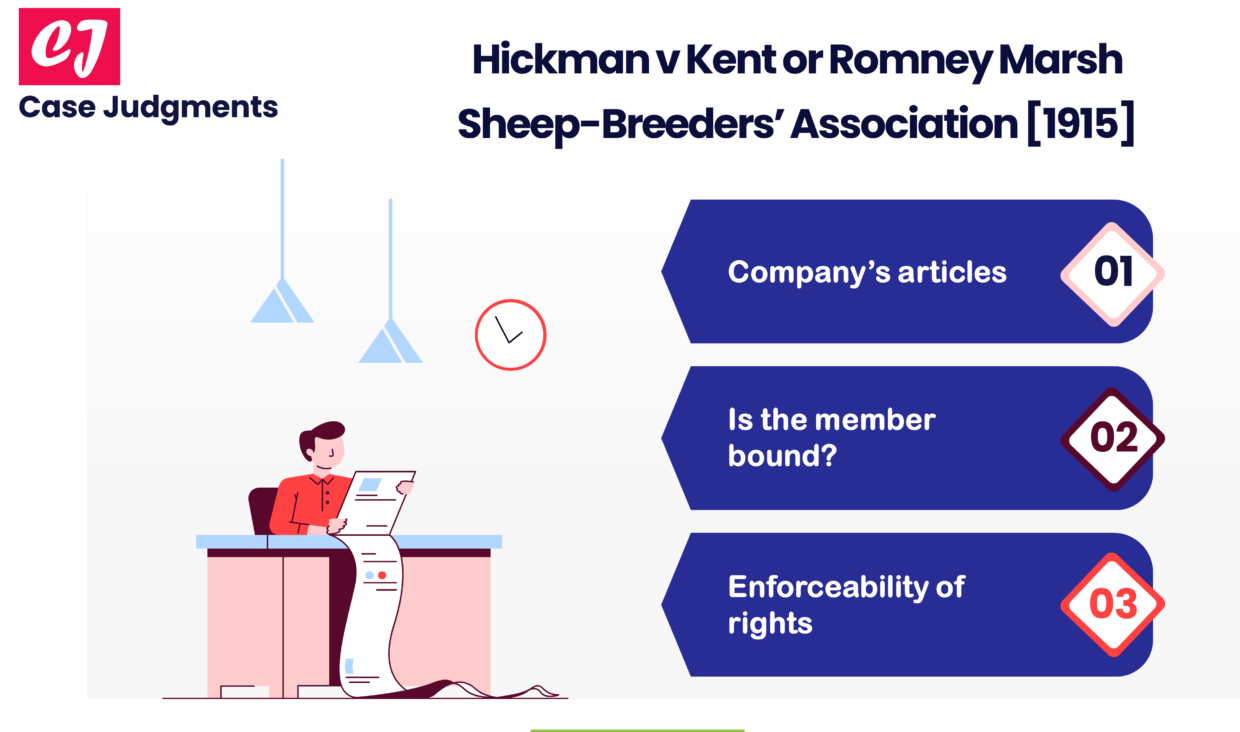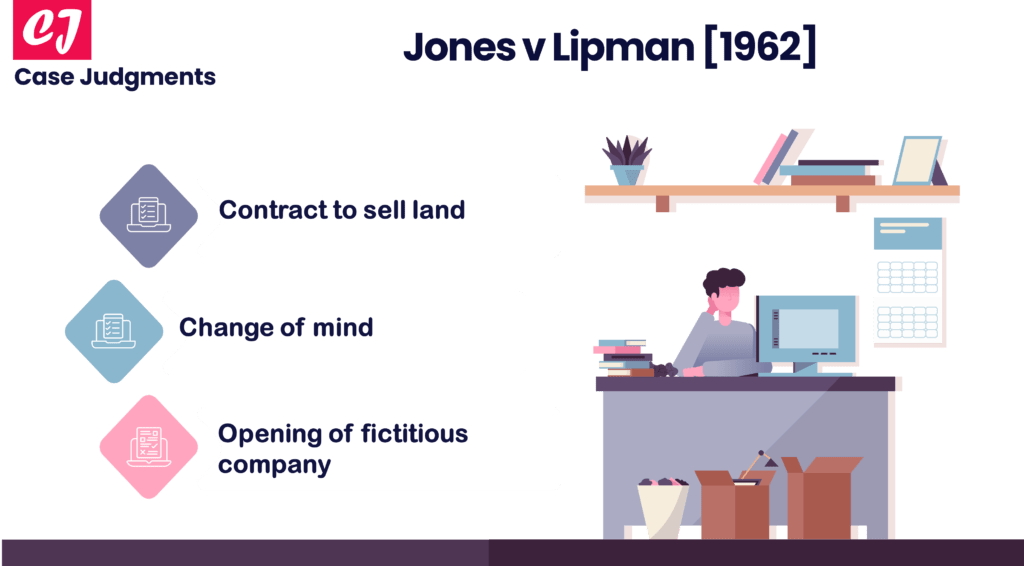
Hickman v Kent or Romney Marsh Sheep-Breeders’ Association [1915]
Case name & citation: Hickman v Kent or Romney Marsh Sheep-Breeders’ Association [1915] 1 Ch 881
Court and jurisdiction: High Court, England and Wales
The learned judge: Astbury J
Area of law: Constitution of a company; Articles of Association
What is the case about?
Hickman v Kent or Romney Marsh Sheep-Breeders’ Association [1915] is a UK company law case that concerns whether a company’s articles bind a member by its terms.
Facts of the case (Hickman v Kent)
Mr. Hickman was a member of the Romney Marsh Sheep-Breeders’ Association.
A provision was contained in the articles of the company stating that any disagreements between the company and its members were to be initially submitted to arbitration.
Mr. Hickman brought a complaint over the refusal to register his sheep in the published flock book, and as a result, he faced the risk of being expelled. He initiated proceedings in the High Court, and the association sought an injunction.
Issue
The issue was whether Mr. Hickman was prevented by the articles to commence court proceedings. Was his action valid or not?
Judgment of the Court in Hickman v Kent
It was decided that the action violated the obligation imposed on the claimant by the company’s articles, which required him to submit his grievance to arbitration before taking it to Court.
As a member, he was bound to comply with the company’s policy regarding the arbitration of disputes and could not resort to Court.
Enforceability of rights
Articles of association are a company’s bye-laws or rules and regulations that govern the management of the company’s internal affairs and the way the company conducts its business. They are also known as charter documents.
The articles of association usually form a statutory contract binding on the company and its members and enforceable by both. Each member is obligated to follow the rules outlined in the Articles. He is obligated to abide by everything that is contained in the Articles of the company.
Astbury J stated as follows:
“Firstly, that no articles can constitute a contract between the company and a third person; secondly, that no right merely purporting to be given by an article to a person, whether a member or not, in a capacity other than that of a member, as for instance, a solicitor, promoter, director, can be enforced against the company; and, thirdly, that articles regulating the rights and obligations of the members generally as such do create rights and obligations between them and the company respectively.”
List of references:
- https://e-space.mmu.ac.uk/621462/1/business-organisations-and-agency%20PUBLISHED.pdf
- https://mcmahonsolicitors.ie/constitutional-contract/3/
- https://lawcasesummaries.com/knowledge-base/hickman-v-kent-or-romney-marsh-sheepbreeders-association-1915-1-ch-881/
You might also like:
More from corporate law:

